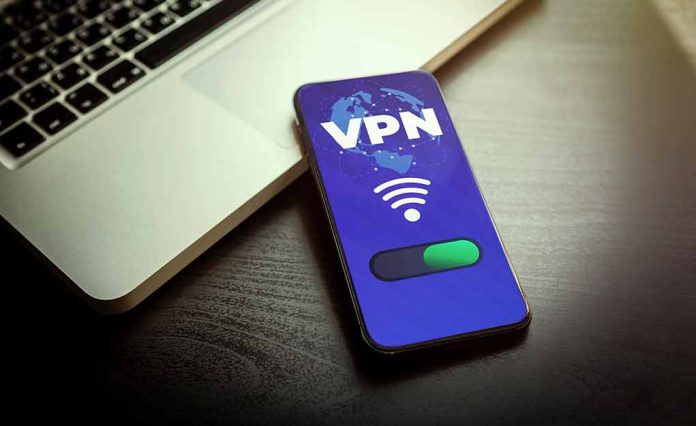
Russia’s aggressive targeting of VPNs marks a significant move to control the country’s digital narrative, but a tug-of-war continues as Google resists demands.
At a Glance
- Roskomnadzor issued over 200 takedown requests for VPN apps on Google Play Store.
- Google has resisted, leaving the majority of VPNs still available in Russia’s Play Store.
- Roskomnadzor also demanded takedown of URLs on sensitive political topics.
- GreatFire found 346 out of 399 VPN apps remain available despite the crackdown.
Russia’s VPN Crackdown intensifies
Russia’s federal censorship agency, Roskomnadzor, escalated efforts to control online narratives by demanding the removal of hundreds of VPN applications from Google’s Play Store. Spanning March 12 to April 1, 2025, the agency issued 214 requests, aiming to curb tools citizens use to bypass internet censorship and surveillance. Despite the pressure, Google resisted, resulting in only a handful of targeted apps being pulled. Many of these VPNs remain accessible, demonstrating resistance against censorship.
The crackdown extends beyond mobile applications. Roskomnadzor requested the takedown of more than 83,000 URLs related to transgressive topics under Russia’s “VPN law.” Despite these efforts, a substantial portion of VPN applications, 346 out of 399, continue to be available, thanks to Google’s non-compliance. This ongoing standoff underscores the reluctance from tech firms, especially Google, to align with Russia’s extensive censorship requirements.
The Expanding Scope of Censorship
Aside from mobile apps, Roskomnadzor’s attention has turned towards URLs covering politically sensitive subjects. These include information on the Ukraine war, LGBTQ+ issues, and a vast array of societal problems. The ongoing effort reflects Russia’s increasing authoritarian control over information dissemination. Reports show that some VPN apps such as Amnezia VPN have been removed, though the exact causes remain unclear. Global digital rights organizations have emphasized the importance of scrutinizing tech companies’ interactions with authoritarian regimes.
The calls for greater oversight and accountability of tech giants are growing. These companies are positioned at a crossroads where their actions can either protect civil liberties or enable digital repression. While Google’s resistance offers some reprieve, there is an urgent call from advocates like GreatFire for legislation to ensure such corporate accountability.
A Call for Action
The systematic crackdown not only targets VPNs but fuels a broader civil liberty debate on state surveillance and access to free information. Benjamin Ismail stressed the importance of addressing the ongoing digital repression, saying, “The evidence from Lumen Database is unequivocal: the Russian government is waging an all-out war on VPNs and all other tools enabling Russian citizens to bypass censorship and surveillance.”
The current scenario presents a precarious situation for VPN availability, with demands for transparency and accountability from global tech platforms, including how they navigate pressures from authoritarian governments. As this situation unfolds, it highlights the pivotal role such tech entities play in shaping digital freedoms and suppressions worldwide.
Stay tuned for future updates.




